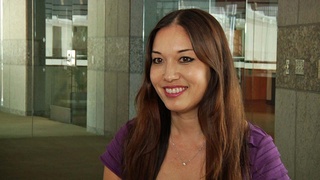Interviews
Growing up and identity
I grew up in a neighborhood, my school pretty much all the way up until college had been all Caucasians and Asians and here I am this one, only black kid in school. And actually to be honest no one really made a big deal about it. I never felt any different. I was accepted just like any other kid. I never really thought about it until college amazingly enough because you think as a child kids are so honest they just kind of will say things without thinking. But it wasn’t until college that my race was brought into question. People would say, you know why do you speak like that. Meaning not speaking like stereotypically black just having good grammar or why do you look that way. They wanted to know what I was, like why is my hair kind of straight and I think they are more interested in. I didn’t have any problems. I think they were just more interested. And I never really realized that I was different until college and I think after awhile it became an attribute because I looked a little different than everybody else. And I just think if anything it has totally enhanced my life because I try to or I feel like I get the best quality of both cultures and try to put them together.
Date: February 7, 2000
Location: California, US
Interviewer: John Esaki
Contributed by: Watase Media Arts Center, Japanese American National Museum
Explore More Videos





Marriage during anti-miscegenation laws
(b. 1930) Half Japanese and grew up in both Japan and the United States.

Growing Up in Japan
(b. 1930) Half Japanese and grew up in both Japan and the United States.

Postwar school-life
(b. 1930) Half Japanese and grew up in both Japan and the United States.

On Challenging Institutions
(1938-2020) Japanese American attorney and civil rights activist

Pop and Balls
(1938-2020) Japanese American attorney and civil rights activist

Re-examining Identity
(1941-2018) Japanese Canadian photojournalist and activist

Fitting in to both sides of her family
Jewish Japanese American journalist


Culture is an important part of one's identity
Jewish Japanese American journalist


